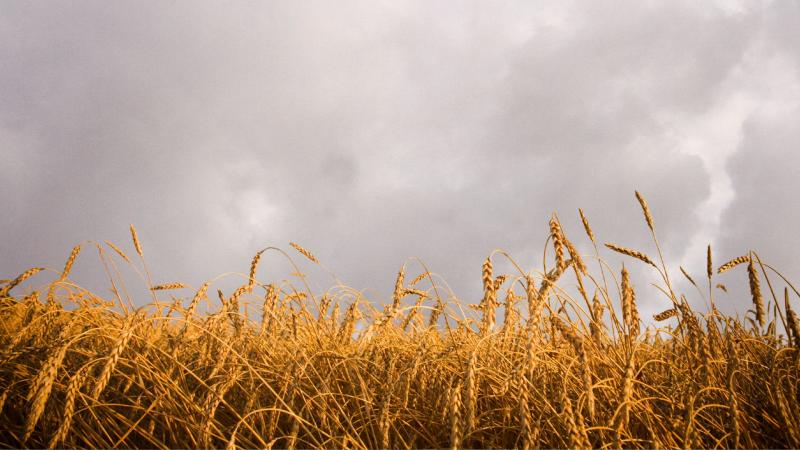Tags
Coal power is affecting our rice and wheat crop yields, according to new study.
Research Matters Staff Writer(s), California

Rice and wheat are staple foods in India, playing a crucial role in the country’s food security and cultural heritage. Both crops are integral to traditional cuisines and festivals, highlighting their cultural and social importance in Indian society. They are also the primary sources of carbohydrates, providing essential energy to millions of people.
Now, new research from Stanford University has discovered a distressing link between air pollution and crop productivity in India. Specifically, the researchers investigated how nitrogen dioxide (NO2) emissions from coal-fired power plants can harm two of the country’s most important crops- rice and wheat.
NO2 is one of the primary byproducts of coal burning in power plants. The gas is part of a larger group of air pollutants known as nitrogen oxides (NOx). Once emitted, NO2 can travel long distances, affecting regions up to 100 kilometres away from the source. NO2 is also harmful to plants in several ways. It can stress plants by interfering with their cellular functions and enzyme activities. Furthermore, NO2 contributes to the formation of ozone and particulate matter, which have their own damaging effects on crops.
The study utilised several key datasets, including satellite observations of NO2 from the TROPOspheric Monitoring Instrument (TROPOMI), electricity generation data from India’s Central Electricity Authority, and meteorological data, including wind direction and climate variables, and crop yield data to see actual impacts on agriculture. By combining this information with detailed knowledge of coal power plant operations, they could precisely estimate how much pollution from these sources affects nearby crops.
Researchers then developed a regression model that combined electricity generation data with wind direction and satellite-measured NO2 concentrations over cropland areas. This model was used to correlate NO2 exposure with crop yield data over time. The model leveraged high-resolution wind direction data to estimate the exposure of different croplands to emissions based on their proximity and position relative to power stations. This method helped isolate the impact of NO2 from coal emissions by assuming that changes in wind patterns provided a natural experiment where some areas received more or less pollution exposure due to these random wind shifts.
The study identified significant yield losses in rice and wheat crops due to NO2 emissions from coal power plants. In heavily exposed regions such as parts of West Bengal, Madhya Pradesh, and Uttar Pradesh, annual yield losses exceeded 10%. Such losses are equivalent to approximately six years’ worth of average annual yield growth in India between 2011 and 2020.
The researchers also looked at how much crop damage was caused by air pollution from coal power plants compared to the health impacts in terms of premature deaths caused by the same pollution. They found that, for many power plants, the damage to crops (like rice and wheat) per unit of electricity produced was greater than the damage measured by early deaths. Specifically, for 58 of the 144 power plants they studied, rice crops were more affected than the impact measured by early deaths. For wheat, this was true for 35 power plants. The power stations contributing to the most prominent crop losses were not necessarily the same as those linked to the highest mortality rates, highlighting different regional impacts.
The study underscores the importance of considering crop losses in policy decisions about regulating emissions from coal-fired power plants in India. Its findings suggest that addressing NO2 emissions could significantly benefit food security and agriculture, improve public health outcomes, and promote cleaner and greener energy sources.
Additionally, understanding these impacts helps raise awareness about the broader social and economic costs of relying on coal for power generation. It’s not just about health impacts; there’s a significant agricultural aspect to consider, especially in a country like India, where agriculture plays a central role in the economy.
Published Date: February 24, 2025






